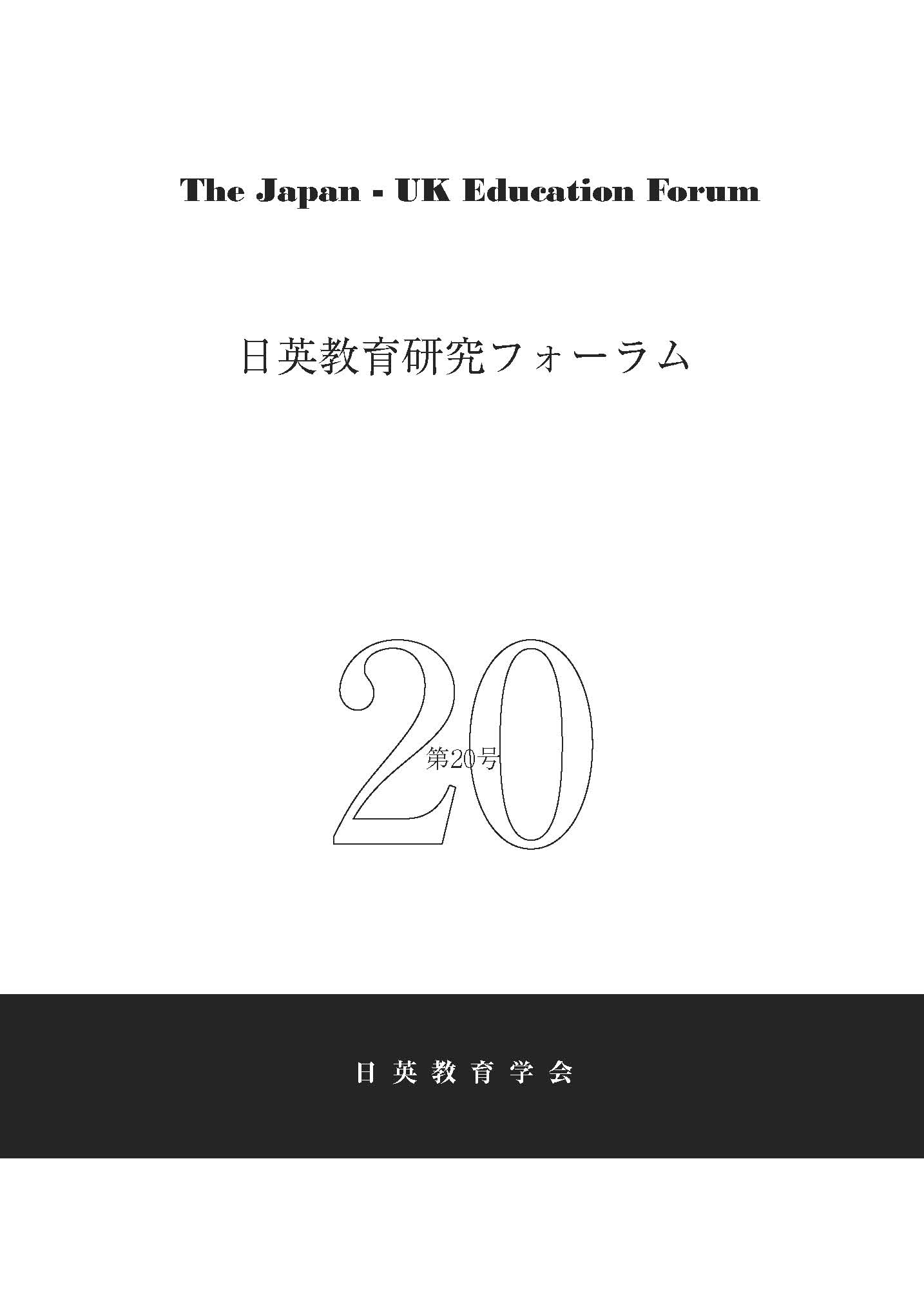Volume 20
The Japan-UK Education Forum
Displaying 1-14 of 14 articles from this issue
- |<
- <
- 1
- >
- >|
-
2016Volume 20 Pages 7-9
Published: 2016
Released on J-STAGE: September 26, 2016
Download PDF (588K) -
2016Volume 20 Pages 11-60
Published: 2016
Released on J-STAGE: September 26, 2016
Download PDF (663K) -
2016Volume 20 Pages 61-78
Published: 2016
Released on J-STAGE: September 26, 2016
Download PDF (492K) -
2016Volume 20 Pages 79-94
Published: 2016
Released on J-STAGE: September 26, 2016
Download PDF (796K) -
2016Volume 20 Pages 95-112
Published: 2016
Released on J-STAGE: September 26, 2016
Download PDF (481K) -
2016Volume 20 Pages 113-127
Published: 2016
Released on J-STAGE: September 26, 2016
Download PDF (820K) -
2016Volume 20 Pages 137-142
Published: 2016
Released on J-STAGE: September 26, 2016
Download PDF (753K) -
2016Volume 20 Pages 143-148
Published: 2016
Released on J-STAGE: September 26, 2016
Download PDF (670K) -
2016Volume 20 Pages 151-164
Published: 2016
Released on J-STAGE: September 26, 2016
Download PDF (743K) -
2016Volume 20 Pages 165-176
Published: 2016
Released on J-STAGE: September 26, 2016
Download PDF (744K) -
2016Volume 20 Pages 179-183
Published: 2016
Released on J-STAGE: September 26, 2016
Download PDF (648K) -
2016Volume 20 Pages 185-187
Published: 2016
Released on J-STAGE: September 26, 2016
Download PDF (584K) -
2016Volume 20 Pages 191-207
Published: 2016
Released on J-STAGE: September 26, 2016
Download PDF (892K) -
2016Volume 20 Pages 209-210
Published: 2016
Released on J-STAGE: September 26, 2016
Download PDF (513K)
- |<
- <
- 1
- >
- >|
